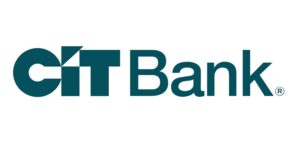
The simple answer of whether or not opening a checking account will hurt your credit score is unfortunately sometimes. It isn’t common for a new checking account to impact your credit score, but there are going to be a couple exceptions. When you apply for a new checking account, what happens is your bank may check your credit score. Depending on how the credit pull is completed, the request may show up on your credit report as an inquiry.
Understand the Application Process
If you’re worried about a hard pull inquiry will lower your credit score, be sure to call your bank before applying. Ask about their process for approving a new checking account. If they mention a credit pull, ask if it’s a hard or soft inquiry.
Hard and Soft Inquiries
A hard inquiry is usually used by lenders. Your bank may use a hard pull when opening a checking account to approve you for overdraft protection. Some forms of this protection are considered a line of credit. In addition to the inquiries’ immediate effects on your credit, the bank may also report this as a use of the credit line to credit bureaus.
A soft inquiry shows on your credit report but it doesn’t effect your credit score. This is because a soft pull is not tied to a potential loan or line of credit. Soft credit inquiries will report differently since there isn’t a chance that you have a new credit amount in the process of opening an account.
ChexSystems
Banks and credit unions also use ChexSystems to gain more insight into your past account use. This report provides information on your past account history, including:
- Overdraft fees
- Negative balances
- Bounced checks
- Fraud
It is rare to be declined a checking account. However, if you owe money to another bank, you’re more likely to be rejected.
What You Need To Open a Checking Account
Once you are ready to open a checking account, you will need to have a few things ready. This will speed up the account opening process. If the address listed no your account is different from the one on your driver’s license, the bank or credit union may request a document to prove where you live.
Banks and credit unions both require an opening deposit for your new account. The amount you need varies from bank to bank. If you open an account in-person, you can take cash. If you open one online, you’ll need a different bank account with a positive balance from which you can transfer your opening funds.
| TYPE | DETAILS |
| Proof of Identification | Driver’s license State identification card Passport Military identification |
| Proof of Current Address | A mortgage statement A lease agreement A utility bill |
| Cash for Deposit | Account number for a transfer Check or money order |
Benefits of a Checking Account
A checking account is a great way to manage your money and if you can manage it well, you will see some benefits that go beyond simply having a safe place to store your money.
Build Credit
When you first open your checking account, it won’t impact your credit score, besides a small hit to your credit inquiry. However, over time, your checking account will be the foundation of building your credit score. Maintaining the same account for a long period of time shows lenders that you can be reliable.
Establish a Banking Relationship
When you open a checking account, you establish a relationship with a financial institution. This opens the door to additional financial products and services like:
- Special savings accounts
- Certificates of deposit
- Auto loans
- Mortgages
- Investment opportunities
Maintain Your Banking Relationship
Once you open a checking account, try to stay with it and not switch up too often. Banks often have some appealing offers to persuade you to switch, but opening up too many and closing accounts will be regarded as a red flag to many lenders. If you do decide to close an account, make sure you leave on good terms and pay off any balances as to not get a negative report.
Do Checking Accounts Affect Credit Score in Other Ways?
Once you open a checking account, dedicate yourself to managing it responsibly. Here are some smart steps to take:
- Avoid using overdraft protection.
- Don’t let your account stay in the negative.
- Protect your account from fraud.
- If you use checks, maintain a log so none bounce.
Although these steps may not have an explicitly positive effect on your credit, they can help prevent any negative effects on your credit. It is advisable that you avoid doing anything that may hurt your credit as you will need it in the future.
Monitor Your Credit Report
You are legally entitled to download your free credit report from all three credit bureaus — TransUnion, Experian and Equifax — once per year. Set a calendar reminder to check your report at least once per year. If your lending activity is higher or if you think you will make a large purchase soon, then you may want to review your report more often.
What To Look For
Ensure all information on your report is correct, including:
- Current and past addresses
- Employment
- Account statuses — open or closed
- Negative balances or money owed
 |
 |
Bottom Line
Overall, if you are thinking about opening a new checking account, make sure you leave your old bank on good terms by paying off any outstanding balances you may have. If this is your first time opening a checking account, contact the bank to learn more about the type of inquiries they might make on your credit. For more posts like this, check out our list of bank guides.




Leave a Reply